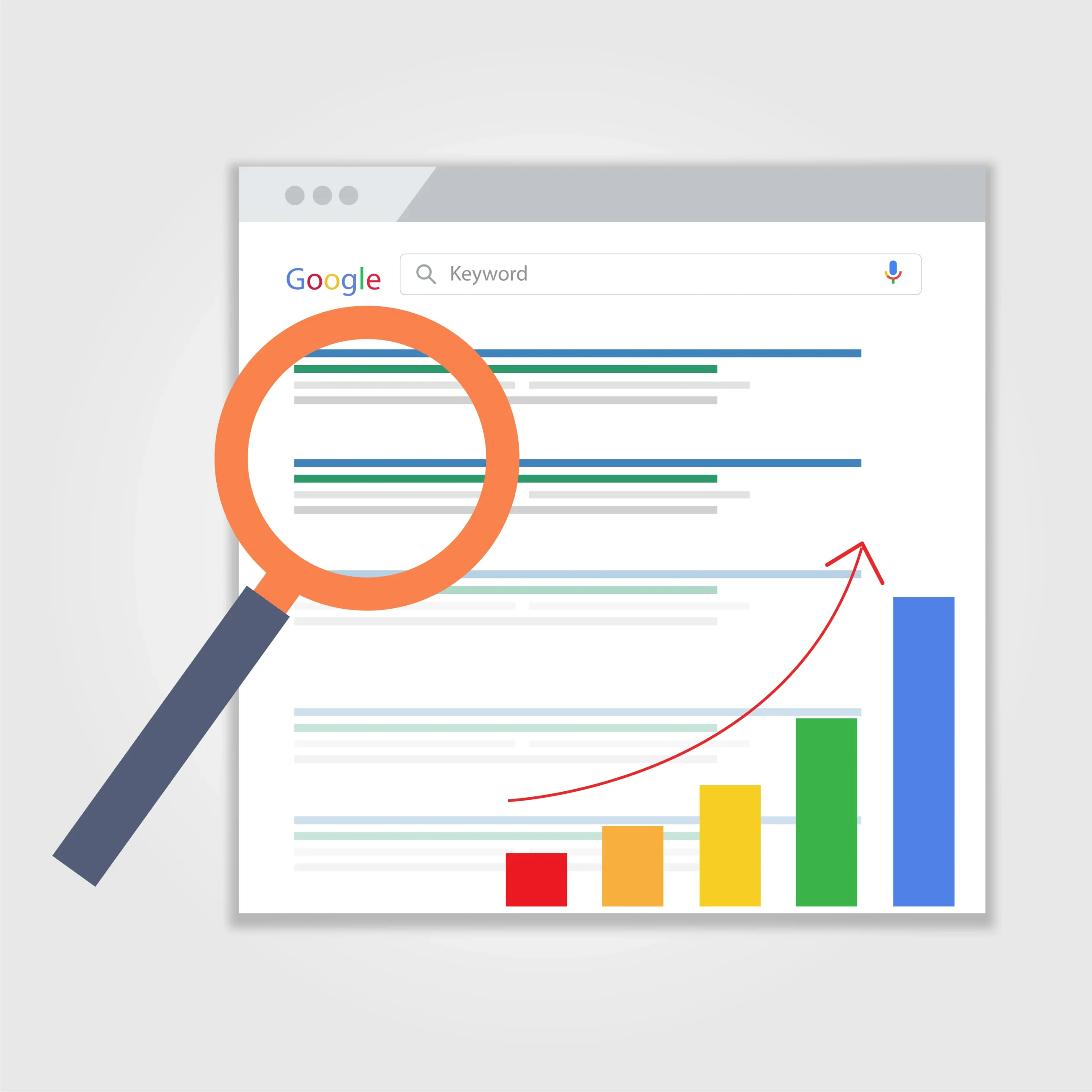Writing blogs for an accounting firm is not just about sharing tax advice or financial tips. Accounting and finance-related blog optimisation is a strategic SEO approach to improving search rankings, attracting the right audience, and generating high-value customers.
Accountancy firms must create valuable content that aligns with SEO best practices and search intent to achieve SEO rank.
This guide covers how to create SEO-optimised, high-ranking, and conversion-focused content for accountancy practice including other blog optimisation strategies.
Key Takeaways
✔ Structuring blog content for readability, engagement, and SEO impact
✔ Aligning content with search intent to target the right audience
✔ Choosing blog topics based on services, client problems, and industry trends
✔ Using question-based headings and active voice to improve search visibility
✔ Applying keyword clustering and internal linking to strengthen topical authority
✔ Regularly updating content to maintain rankings and relevance
Table of Contents
Understanding the Importance of Blogs & Content Marketing
Accounting blogs are an essential content resource for accountancy practice owners. Niche-targeted blogs provide valuable insights and information on financial management, tax planning, and accounting best practices to the target customers, preferably other business owners.
Reading accounting, finance and tax related contents help business owners stay up-to-date with the latest changes in tax laws and regulations, learn how to manage their finances effectively, and gain a better understanding of how to grow their business.
These blog financial contents serve as a reliable source of information, helping small business owners understand the complexities of financial management and make informed decisions that drive business success.
Also, blogs offer the opportunity to solve problems by addressing informational intents and attracting visitors to the service pages. For instance, informative guides on VAT penalties can divert readers to the VAT reclaim & return submission pages by interlinking, Call to action, and form submissions.
Benefits of Accounting Blogs
By reading accounting blogs, business owners can:
- Stay up-to-date with the latest changes in tax laws and regulations
- Learn how to manage their finances effectively
- Gain a better understanding of how to grow their business
- Improve their cash flow management
- Reduce their tax liability
- Increase their profits
- Stay informed about the latest accounting software and technologies
Proven Structure for an Accounting Firm’s Blog Post

Accounting firm owners must create content that is easy to read, addresses client concerns, and aligns with search intent. Most importantly blog topics should align with services and overall website relevance.
A structured writing approach ensures that accountancy blogs rank well in search engines, encourage conversions through offering financial management tips, accounting solution and tax advice.
The overall aim is to position the accountancy practice as an authority in the financial sector (preferably within a specific region).
Below is a breakdown of the essential components of high-performing accounting blogs.
Headline & Introduction: Grabbing Attention and Establishing Relevance
An attractive headline and introduction are the first things a reader notices. Header and introductions determine whether a visitor will stay and read the article or leave, which affects CTR, impressions, and overall search engine ranking performance.
To bring visitors into the financial and tax related service pages, an accounting firm needs to solve informational queries of the visitors.
How to Create an SEO-Optimised Headline?
The heading of the blog needs to be catchy, containing keywords and addressing at least one major intent.
✔ Use clear, relevant keywords to improve rankings.
✔ Make the title solution-focused (e.g., “How to Reduce Corporation Tax for UK Businesses”).
✔ Ensure it matches user intent (e.g., educational, comparative, or transactional).
✔ Avoid generic titles – Be specific to increase click-through rates (CTR).
Header influence Click Through Rate (CTR), a performance measuring analytic that determines the likelihood of getting click. A high CTR indicates a valuable resource, which is a crucial SEO ranking factor.
For example, look at the image below. We ranked our Accountancy client’s website above the BIG International Brand. Our Client RX Virtual Finance is dominating commercial keywords ahead of the international brands.

Writing a Strong Introduction
A blog’s introduction should instantly address the reader’s pain points. It must be engaging, concise and set expectations for what the blog will cover. For example, look at the above picture. We summarised the key intent of the search query in a strategic way, Google picked that to be featured on the snippet.
Example:
❌ Weak Introduction: “Corporation tax is something every business has to deal with. In this blog, we will discuss some details about it.”
✅ Strong Introduction: “Many UK businesses overpay on corporation tax due to a lack of strategic planning. This guide explains how you can legally minimise tax liabilities and improve cash flow.”
Keyword Intent & Topic Clarity: Matching Content to Search Intent
Each accountancy blog post should address one primary intent and include other relevant intents to a similar group of search queries.
Aligning blog content with search intent ensures that it serves the right audience and ranks effectively on search engines. Avoid pushing services in an informational blog. Instead, naturally guide readers toward relevant service-based CTAs.
In the context of financial advice, guide the readers towards the self-assessment process, especially those who are self-employed or have additional income sources. Also address the concerns of those who are not self employed but earns good amount money. You may bring intents of people having no regular earnings but have savings.
So, A single keyword would have multiple variations of the search query like we explained with the financial advice in the previous paragraph.
For example, readers from an informative article around ‘financial advice’ will automatically visit ‘Financial Advice’ service page through the Call to Action buttons. SUch conversions happens only if the blogs are informative enough to impress the readers.
Understanding Keyword Intent in Accounting Blogs
An accounting firm needs to understand which problem the blog will address to solve? A blog post can be used to guide the readers, to help readers take the decision, or to convince the readers to buy services.
Depending on the situation of the intent, context, and the structure, the blog will vary. For example:
- Informational Intent: Users want to learn something.
- Example: “What are management accounts & why do businesses need them?”
- Best for: Guides, educational blogs, FAQs.
- Commercial Intent: Users are comparing options before making a decision.
- Example: “Best accounting software for cash flow management.”
- Best for: Comparison articles, pros/cons lists.
- Transactional Intent: Users are ready to take action.
- Example: “Hire an accountant for tax return filing.”
- Best for: Service pages, booking pages.

Content Formatting for Readability: Improving User Experience
Keeping visitors busy on the website and making them engage with something is crucial for SEO success. Formatting impacts engagement, dwell time, and readability and directly addresses user engagements.
A well-structured blog keeps visitors on the page longer, increasing conversion potential.
For accounting business owners, understanding how to format content effectively can also help in solving the unique challenges they face. For instance, an accounting business might sell annual accounts and tax return services, but the service angle can be varied, such as financial advice, virtual finance office, and growth planning. Based on the structure of the business and search query type, content structures need to be done.
For example, an accounting practice offering tax advice needs to design the blogs in such a way that allows the website to promote actual service within the blog.
Best Formatting Practices for Accounting Blogs
✅ Use short paragraphs (2-3 lines max) to improve readability.
✅ Break down complex financial topics using bullet points, numbered lists, and tables.
✅ Add visual elements (infographics, tax calculation examples, step-by-step guides).
✅ Highlight key data points in bold to make scanning easier.
Example of Formatting for an Accounting Blog
Poor Formatting Example:
“Corporation tax is an important aspect of business finance, but many businesses struggle to understand what qualifies as a deductible expense. Here is some information about allowable deductions, reporting deadlines, and penalties for non-compliance.”
Improved Formatting Example:
What Are Corporation Tax Allowable Deductions?
💰 Common Tax-Deductible Business Expenses:
✔ Office rent and utility bills.
✔ Staff salaries and pension contributions.
✔ Equipment purchases (e.g., laptops, software).

Examples & Case Studies: Adding Practical Value
First-hand experience & case studies demonstrate expertise and build trust for the accounting service websites. Readers engage better with content when real-world examples and case studies are included. True SEO suggests that financial service businesses should share case studies along with what problems they solved and how the clients benefited.
Such case studies not only add a trust factor but also motivate the readers to look for more information within the same website.
For instance, discussing the implications of operating as limited companies can provide valuable insights for business owners. However, adding a case studies realting to a client who saved financial figures by operating as a limited company from sole trader.
How to Use Examples Effectively?
✔ Real-life tax savings scenarios (e.g., “How Company X saved £10,000 using R&D tax relief”).
✔ HMRC case rulings to explain compliance pitfalls.
✔ Accounting report breakdowns to guide small business owners.
For example, an accounting firm can add previous experience as below to enhance the EEAT factor.
“In 2023, a London-based tech startup claimed R&D tax credits, saving £15,000 in corporation tax. Our accountants identified eligible expenses and filed the claim correctly, avoiding HMRC penalties.”
The above example brings:
- Date (to justify the occurrence)
- Location (Local SEO factor)
- Hook to catch readers’ attention (claimed R&D tax credits, saving £15,000)
- Secondary trust factor (avoiding HMRC penalties).
By using the word HMRC (instead of using tax authority), the blog will have UK-based trust signals over the other competitors.
How to Achieve Topical Authority
Adding relevant information and mentioning credible sources & authoritative brands strengthens blog credibility. Ensure targeting high conversion keywords while covering topical depth. It will help with increased traffic, higher impression, and better topical authority.
Focusing on a topic holistically rather than writing around a keyword will increase the ranking chance for any accounting blogs because of the information depth of the blog content.
For instance, let’s say an accounting blog is on annual accounts. You will write about annual accounts preparation best practices and important dates to submit. However, discussing the legal requirement for companies to file their annual accounts can add depth and authority to your content. You may approach – Annual accounts summarize a business’s overall performance after their accounting period ends, and while sole traders are exempt, other businesses have a nine-month window to submit these to HMRC and Companies House.
An accountancy firm can relate the following authorities inside their blog posts so that Google understands the credibility of the blog.
For example, a blog post covering company accounts can be related to the Companies House guidelines for better credibility by the search engine.
✔ HMRC (e.g., VAT thresholds, compliance rules).
✔ Companies House (e.g., incorporation guidelines, director responsibilities).
✔ ICAEW / ACCA (e.g., accounting standards, ethics).
✔ Gov.uk (e.g., payroll tax rates, pension schemes).
Making relations represents including useful information and linking those pages when necessary.
Another example of Cross-Linking to Authoritative Sources:
“According to HMRC, businesses with taxable turnover exceeding £90,000 must register for VAT. You can check the VAT registration process here.”
Why does this work?
✔ Increases trust and credibility.
✔ Helps Google’s NLP understand entity relationships.
✔ Supports topical authority in accounting and tax compliance.
Strategic CTA Placement for CRO: Converting Visitors into Clients
A well-placed Call to Action (CTA) increases engagement and converts visitors into leads. The ultimate purpose of an accountant is to convert clicks into money. Call to Action (CTA) & Conversion Rate Optimisation (CRO) will ensure better lead conversion.
Best CTA Placement Strategies for Accounting Blogs
📌 After the introduction
“Need tax advice? Book a free call today.”
📌 Midway through content
“Struggling with payroll? Let our experts help.”
📌 End of the blog
“Contact our accountants today for a tailored financial plan.”
Good Example (Soft Sell in Informational Blog):
“Many businesses unknowingly overpay on taxes. Need help with tax planning? Our expert accountants can guide you—book a free consultation today.”
Good Example (Direct Sell in Service-Based Blog):
“Ensure full HMRC compliance and reduce tax liabilities. Hire our accountants today for professional tax filing services.”
✔ Why This Works?
- Encourages conversions without sounding overly promotional.
- Ensures readers take action after getting valuable insights.
- Matches CTA placement with the reader’s journey.
Why Should You Use Question-Based Headings in Accounting Blogs?
Using question-based headings in accounting contents improves addressing specific search intent.
It helps with search rankings, user engagement, and voice search visibility. Google’s Natural Language Processing (NLP) algorithms prioritise content that directly answers user queries. Providing specific answers to an interogative heading increases better chance to be featured in Google Search Snippet.
Moreover, a Search engine converts each subheading into a question while processing the content. Subheadings already in interrogative form make the job easier for the search engine.
Another great benefit of interrogative subheading is the voice search adaptability.
Normally, people ask questions while making a voice search. For instance, we ask: Alexa – how to reduce corporation tax?
In such a circumstance, Alexa or Google will look for answers relating to: how to reduce corporation tax. Any matched heading will surely get an advantage in these searches.
How Do Question-Based Headings Improve AI Search & Voice Search?
Google’s algorithms, including Search Generative Experience (SGE) and AI-powered results, prefer content that mirrors real user queries. Blogs using question-based headings are more likely to:
✔ Rank in Featured Snippets (Position Zero) – Google highlights direct answers for common finance-related queries.
✔ Appear in Voice Search Queries – Users frequently ask, “Hey Google, how do I claim tax relief?” AI prioritises structured answers.
✔ Enhance User Engagement – Readers stay longer when content is structured as direct Q&A formats.
Why Should You Avoid Passive Voice in Accounting Blogs?
Avoiding passive voice in accounting blogs improves readability, search rankings, and user engagement.
Google ranks content based on clarity and engagement, meaning passive voice can reduce content effectiveness. Google’s NLP analyses sentence structure to determine clarity. Passive voice delays meaning, making it harder for search engines and readers to interpret.
Active voice helps in:
✔ Improving Readability – Shorter, direct sentences are easier to read and scan.
✔ Enhancing SEO Rankings – Google rewards content that matches search intent quickly.
✔ Increasing User Engagement – Readers stay longer when content is clear and conversational.
✔ Strengthening Authority – Blogs feel more confident and direct, which improves trust.
How to Maintain Content Quality & SEO Performance?
To rank well and attract the right audience, accounting blogs must be well-structured, regularly updated, and optimised for search engines. Maintaining content quality ensures higher rankings, better engagement, and increased conversions.
Ideal Blog Length for Accounting Blogs
Your blog’s length should match the topic’s complexity and the user’s search intent.
✔ 1,500 – 2,500 words → Best for in-depth tax guides, compliance walkthroughs, and financial strategies.
✔ 800 – 1,200 words → Ideal for tax deadline reminders, HMRC updates, and quick accounting insights.
Longer content ranks better when it fully answers the search query and provides unique insights and adds relevant topics.
Blog Posting Frequency & Content Refreshing
Regular content updates signal freshness to Google, helping maintain rankings.
✔ Publish at least 4 new high-quality blogs per month to build topical authority.
✔ Refresh older blogs every 6 months to include updated tax laws, financial regulations, and industry trends.
Updating content keeps it relevant and valuable to both users and search engines.
Measuring SEO Performance
Tracking key metrics helps refine your blog strategy for better results.
✔ Google Analytics → Measure organic traffic, user behaviour, and conversions.
✔ Google Search Console → Monitor keyword rankings and search impressions.
✔ Heatmaps & User Journey Tracking → Identify content improvements for better engagement and lead generation.
How should accounting blogs be?
A strong blog strategy helps accounting firms attract the right clients, establish authority, and generate leads. But randomly picking topics isn’t enough. Your content needs to align with your services, answer client questions, and match what people are searching for. Without a clear structure, you risk low engagement, poor rankings, and wasted effort.
Successful accounting blogs should:
✔ Answer common financial and tax-related queries that business owners have.
✔ Cover industry trends, HMRC regulation updates, and compliance issues.
✔ Provide solutions to real client pain points, such as cash flow issues and tax savings.
✔ Include location-based content to attract clients in specific areas.
✔ Offer niche insights for specialised industries, like pharmacy or construction accounting.
Aligning Blog Topics with Your Accounting Firm’s Business Model
Your blog should reflect what your firm does and what your clients need. Every topic should either educate potential clients, solve a common issue, or guide them toward using your services. If your content doesn’t support your core services or client interests, it won’t bring in relevant leads or help your rankings.
Where do good blog topics come from?
✔ Your Services – Tax planning, bookkeeping, payroll, business advisory.
✔ Client Problems – Managing cash flow, reducing tax liability, avoiding HMRC penalties.
✔ Industry Trends – VAT updates, government budget changes, financial reporting standards.
✔ Customer Pain Points – Late tax penalties, software issues, financial growth concerns.
✔ Niche Specialisation – Pharmacy accounting, e-commerce bookkeeping, contractor tax advice.
For example, if you focus on small business accounting, your blogs should cover VAT thresholds, corporation tax-saving strategies, and deductible expenses.
If you work with freelancers, your content should explain IR35 rules and tax-efficient business structures. Look how the Accounting Firm Expert – Mr. Reza Hooda creates contents for his firm ‘Capture Accounting’. The firm’s target customers are freelancers and creative people. Capture accounting is not writing blogs on the ‘Let property Campaign’. Write to solve a problem for their targeted visitors.
How to Generate Blog Topics for an Accounting Firm
Generating blog topic ideas needs a systematic approach. Rather than writing about random subjects, structure your content around clear categories:
Service-based blogs – Explain and promote your accounting services.
Problem-solving blogs – Answer common financial and tax-related challenges.
Location-based blogs – Improve rankings for clients searching in specific areas.
Industry trend blogs – Cover regulatory changes, tax laws, and economic shifts.
Client goal blogs – Help businesses cut costs, save on tax, and improve financial health.
Service-Based Blog Ideas for Small Business Owners
Your core services can be turned into multiple blog posts:
✔ Tax Planning & Compliance
- “What Are the Best Tax-Saving Strategies for Small Businesses?”
- “How to Prepare for an HMRC Audit Without Stress”
- “VAT Registration Guide: When Should Your Business Register for VAT?”
✔ Bookkeeping & Payroll
- “How to Maintain Business Records for HMRC Compliance?”
- “How to Set Up Payroll for Small Businesses in the UK?”
- “What Are the Most Common Payroll Mistakes and How to Avoid Them?”
✔ Business Advisory & Financial Strategy
- “How to Improve Cash Flow and Avoid Business Insolvency?”
- “What Financial Reports Do Small Business Owners Need?”
- “How to Maximise Business Profits with Strategic Cost Optimisation?”
Each of these topics is closely linked to an accounting service, helping clients understand its value and why they might need expert help.
Problem-Solving Blog Ideas
Many business owners turn to Google when they have financial problems. Writing blogs that provide real solutions builds trust and can convert readers into clients.
✔ Tax Issues & Compliance Risks
- “What Happens If You Miss Your Corporation Tax Deadline?”
- “How to Avoid Late Payment Penalties from HMRC?”
- “How to Appeal an HMRC Tax Decision?”
✔ Cash Flow & Financial Challenges
- “Why Do Most Small Businesses Struggle with Cash Flow?”
- “How to Cut Business Expenses Without Hurting Growth?”
- “How to Avoid Overpaying on Taxes as a Sole Trader?”
✔ Industry-Specific Accounting Problems
- “How to Account for Inventory and Stock in Retail Businesses?”
- “What Are the Best Bookkeeping Practices for E-commerce Businesses?”
- “How to Handle Tax Returns for Freelancers and Contractors?”
These blogs are valuable because they answer real pain points that clients face, making them more likely to engage with your firm.
Location-Based Blog Topics for Local SEO
If your firm serves a specific area, creating geo-targeted content helps attract local clients. This improves your rankings in Google’s local search results and your Google Business Profile visibility.
✔ Targeting Specific Cities & Regions
- “How to Find a Reliable Accountant in Manchester?”
- “London Small Business Tax Guide – What You Need to Know”
- “Best Accounting Firm in Birmingham for VAT Compliance”
✔ Location-Specific Compliance & Regulations
- “What Are the Local Business Tax Requirements in Scotland?”
- “How to File Business Taxes in Northern Ireland?”
- “What Are the HMRC Rules for Businesses in Wales?”
A firm with multiple offices can tailor content for each region, increasing the chances of appearing in local search results.
Writing Niche-Based Blog Content for Specialised Accounting Services
If your firm has expertise in a niche like pharmacy accounting, property tax, or contractor bookkeeping, creating industry-specific blog content can help dominate search results for that audience.
Example: Pharmacy Accounting Blog Topics
✔ Financial Management for Pharmacies
- “How to Set Up a Pharmacy’s Chart of Accounts?”
- “What Are the Key Financial KPIs for a Pharmacy Business?”
✔ Taxation & Compliance for Pharmacies
- “How Pharmacies Can Reduce Tax Liability in the UK?”
- “Understanding HMRC Regulations for Pharmacy Inventory Management”
✔ Payroll & Staffing for Pharmacies
- “How to Set Up Payroll for Pharmacy Employees?”
- “What Are the National Insurance Contributions for Pharmacy Staff?”
✔ Cost Optimisation
- “How to Reduce Overheads in a Pharmacy Without Impacting Service?”
- “Inventory Management Strategies to Prevent Medicine Expiry Losses”
These topics attract pharmacy owners who are actively searching for accounting services.
How to Connect Niche Blogs with Services, Locations, and Case Studies
Once niche-focused content is created, it should be linked to:
✔ Service Pages – Linking to pharmacy accounting, tax planning, or VAT services.
✔ Case Studies – Highlighting real-world success stories.
✔ Location Pages – Attracting clients searching for “pharmacy accountants near me.”
✔ Expertise Pages – Showcasing industry-specific experience.

We are expert in Accounting Firm SEO
We help accounting firms ranking high in google, engage visitors from different financial enquiries and needs, design NICHE WEBSITE for accountancy practices.
Request an SEO Audit – Stay Ahead of Your Competitors
SEO Opportunity – How Can UK Accountants Win the “Childcare Accountant” Niche?
You can win the “childcare accountant” niche with SEO because UK search demand is high, competition quality is low-to-medium, and…
Different Niches for Accountants in the UK: a data-led SEO playbook
Specialising in a tightly defined niche helps UK accountants win more qualified leads, rank for specific intent keywords, and close…
SEO for Financial Advisors: The Complete Guide to Ranking, Leads, and Trust
SEO matters for financial professionals because it tackles three challenges at once: visibility, credibility, and conversion.First, you need to…
To rank higher in AI-driven search engines and voice search results, you must optimise your website for voice search by…
Topical authority is your website’s perceived score assigned by the Search Engine. The term authority represents that your website holds…
How to use AI & ChatGPT for Article writing & blogging? 16 Effective Strategies
AI tools like ChatGPT are a must-have for bloggers and content creators. 63% of marketers now use AI for content…







